The Dark Zone Movement in Gujarat: Jawahar Chavda’s Fight for Farmers’ Rights
In 2007, after winning the Legislative Assembly Elections, Shree Jawahar Chavda took a deep interest in the problems affecting farmers, especially in Manavadar and Vanthali. One of the biggest issues he encountered was the government’s ban on new electricity connections due to the Dark Zone Movement in Gujarat.
The Dark Zone Movement in Gujarat was enforced under the pretext that groundwater had become saline and contaminated, restricting farmers from using underground water resources. However, Jawahar saw a major flaw in this reasoning—businesses, industrialists, and builders were still allowed to extract water, while only farmers were being punished under the Dark Zone Movement in Gujarat.
Understanding the Dark Zone Movement in Gujarat
When Jawahar Chavda spoke with villagers, he found that most people believed once a village was declared part of the Dark Zone Movement in Gujarat, there was no way out. No one had challenged the system before because past efforts to overturn the Dark Zone Movement in Gujarat had all failed. Many politicians avoided such issues, as they required long-term struggle rather than quick political gains.
But Jawahar Chavda was different—he believed that if an injustice exists, it must be challenged, no matter how difficult the fight. The Dark Zone Movement in Gujarat was no exception.
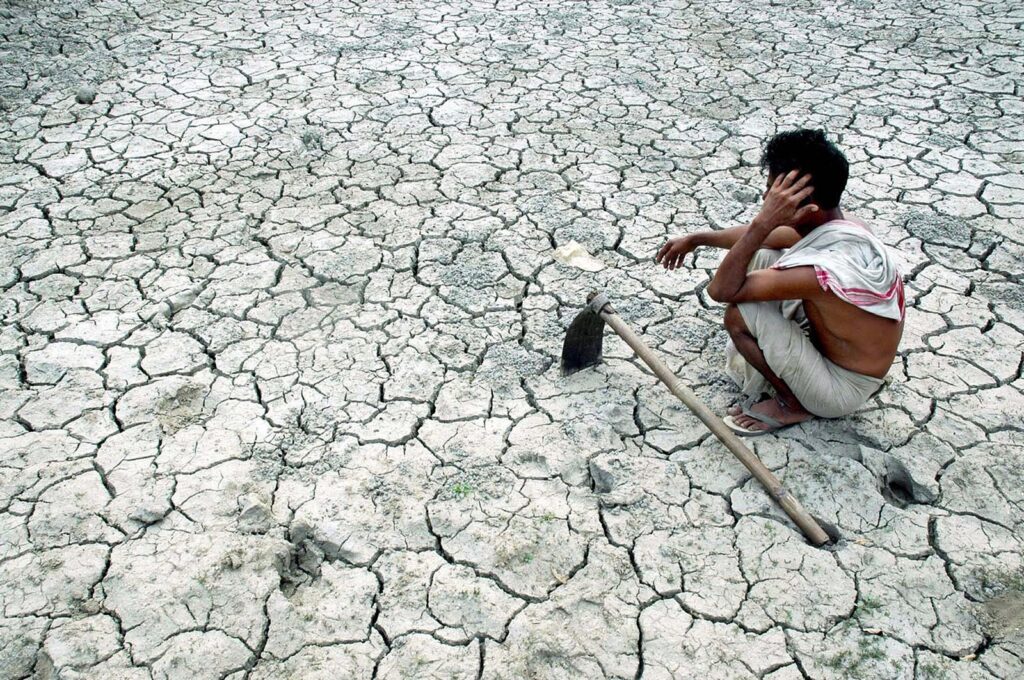
Strategizing the Dark Zone Movement in Gujarat Protest
Before launching his campaign, he consulted experienced leaders from both Congress and BJP who had led major movements. He studied historic protests by Sardar Patel, Jawaharlal Nehru, and Mahatma Gandhi to understand effective strategies for challenging the Dark Zone Movement in Gujarat. Armed with knowledge and strategy, he initiated a major movement against it.
Exposing the Flaws of the Dark Zone Movement in Gujarat

Unfair Privilege: Businessmen, industrialists, and builders were allowed to extract water, despite the Dark Zone Movement in Gujarat.

Unjust Restrictions: Only farmers were restricted from using groundwater due to the Dark Zone in Gujarat.

Challenging the Injustice: Why was water access restricted only for agriculture? This injustice had to be challenged.
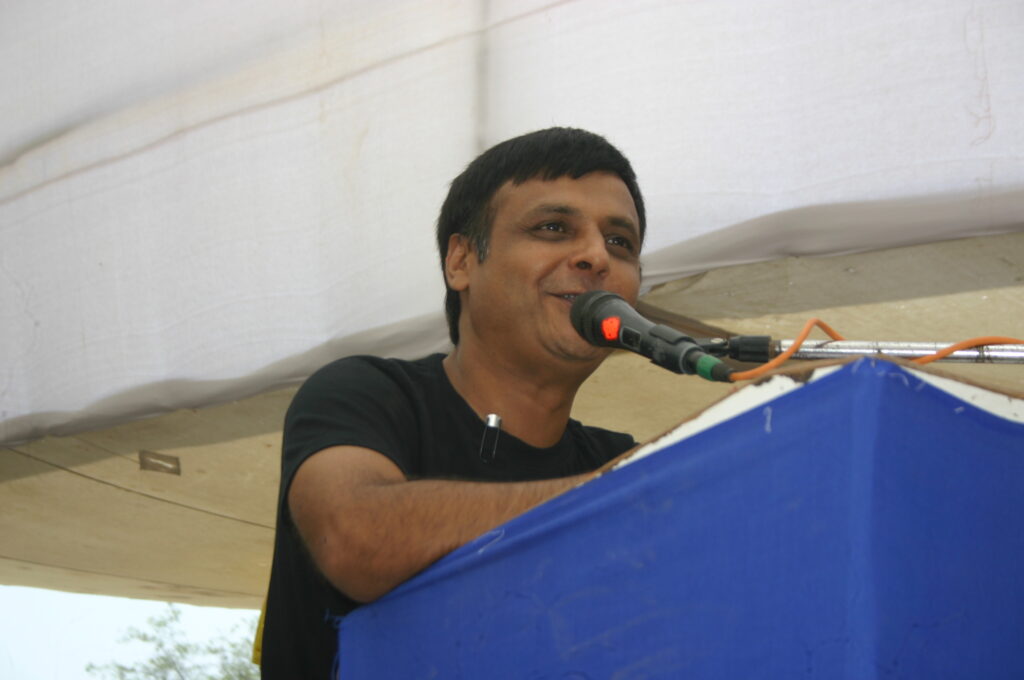
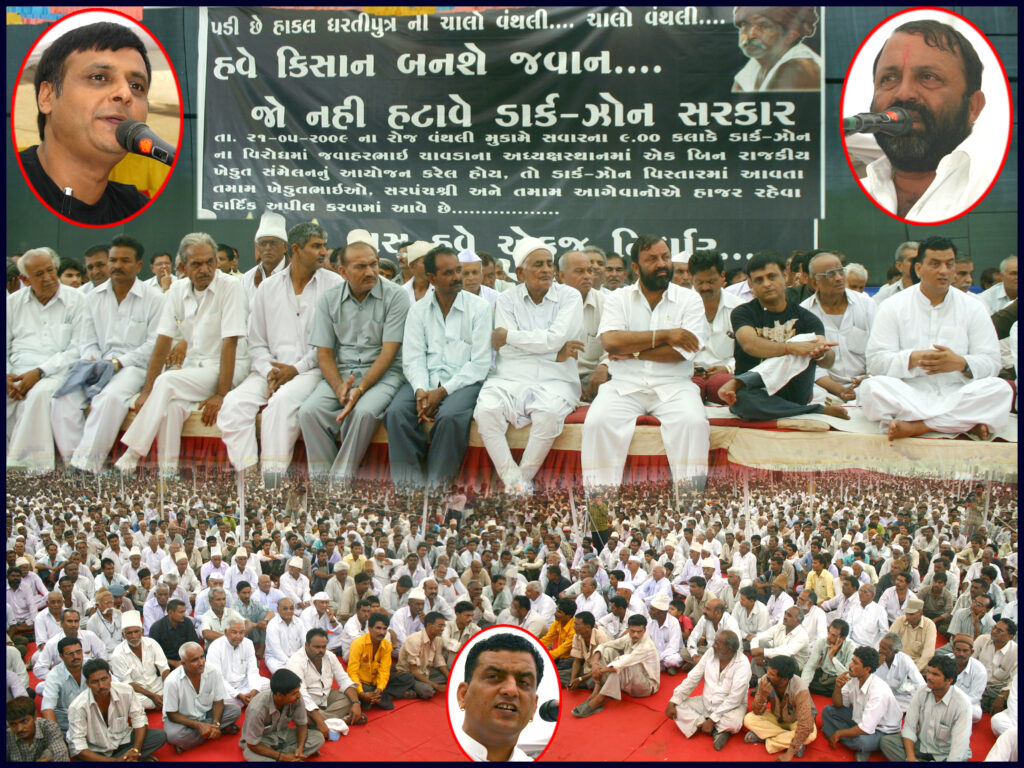
Challenging the Dark Zone Movement in Gujarat

Formed Organizations: United farmers affected by the Dark Zone Movement in Gujarat.

Printed Pamphlets: Explained the flaws of the Dark Zone Movement in Gujarat.

Village Awareness: Traveled across villages, raising awareness about the Dark Zone Movement in Gujarat.

Legislative Action: Spoke in the Assembly, directly challenging the Dark Zone Movement in Gujarat.

Signed All Documents: Jawahar Chavda signed all necessary documents and official letters to push for policy changes.

Issued Official Letters: Sent multiple representations and letters to government authorities, demanding relief for farmers.

Impact Across Gujarat The movement benefited 57 blocks, covering almost 25% of Gujarat, ensuring thousands of farmers regained access to groundwater for irrigation.
His message was clear: “ઘરતી એ આપણી માતા છે. જેમ માના ઘાવણ પર પ્રથમ અધિકાર તેના સંતાન નો હોય તેમજ ઘરતીના પેટાળના પાણી પર પેહલો અધિકાર ધરતી પુત્ર (ખેડૂત) નોજ હોય .”
The Three-Year Battle Against the Dark Zone Movement in Gujarat
From 2009 to 2012, Jawahar Chavda fought tirelessly against the Dark Zone Movement in Gujarat, compelling the government to reconsider its stance. Initially, officials ignored his demands, but he escalated protests and brought the issue to the attention of state authorities. He exposed the contradictions in the policy—if groundwater use was banned under the Dark Zone Movement, why were industries exempt while farmers faced restrictions? After three years of relentless struggle, his efforts paid off, and in 2012, the government finally lifted the ban, allowing farmers to access electricity and water for agriculture.
Press Release
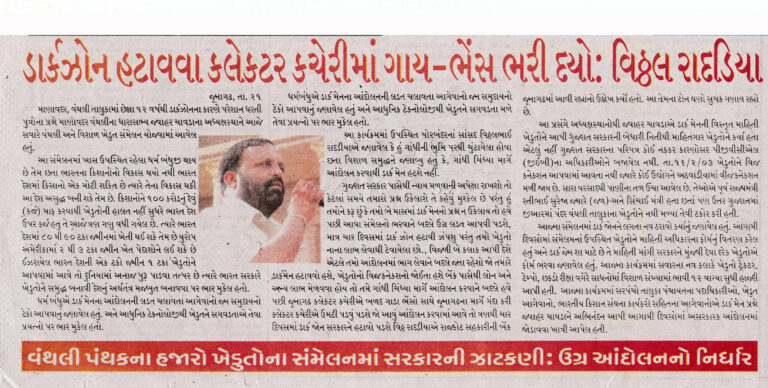
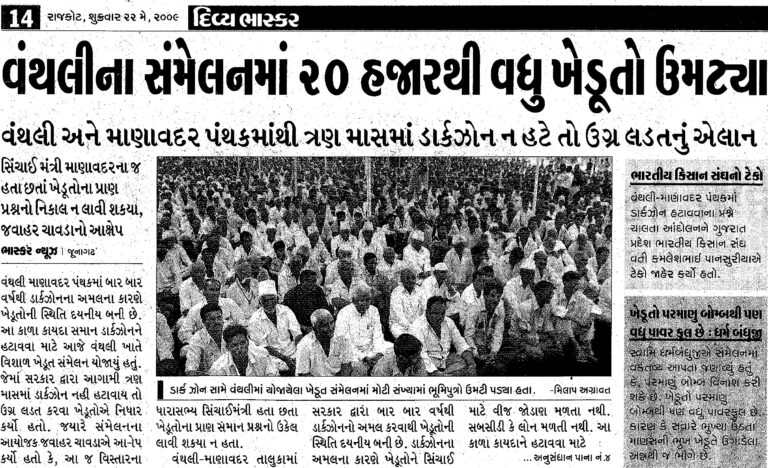
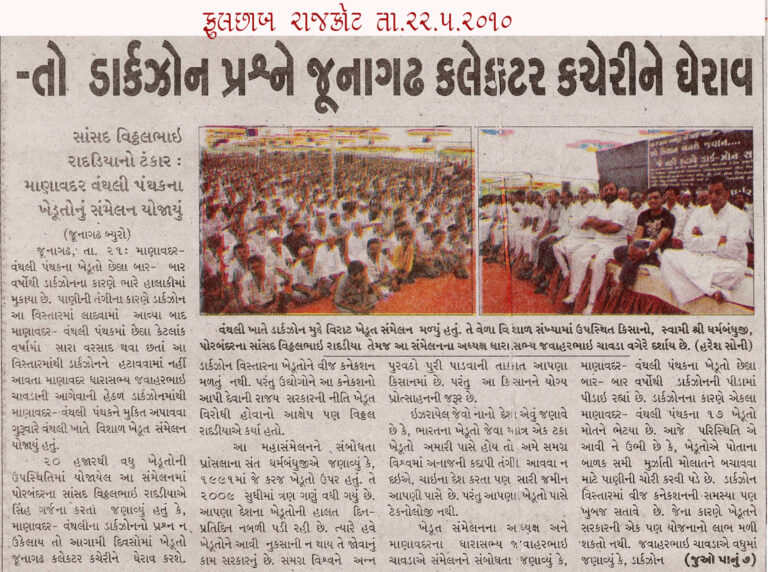
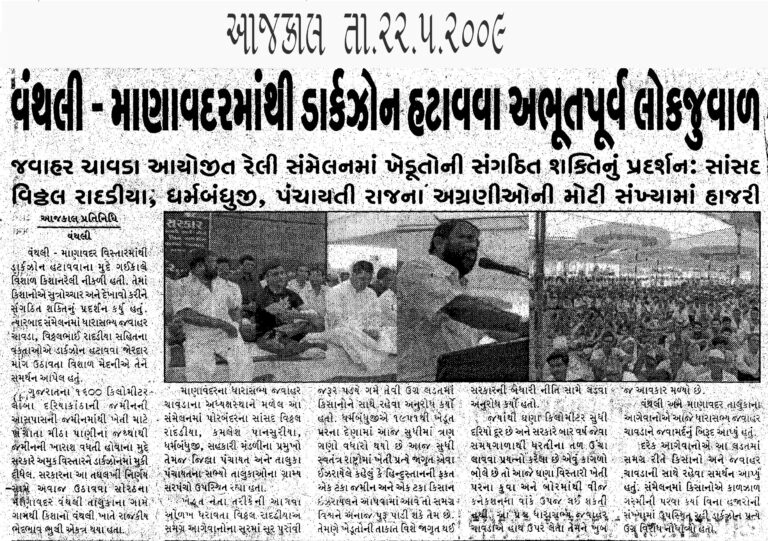
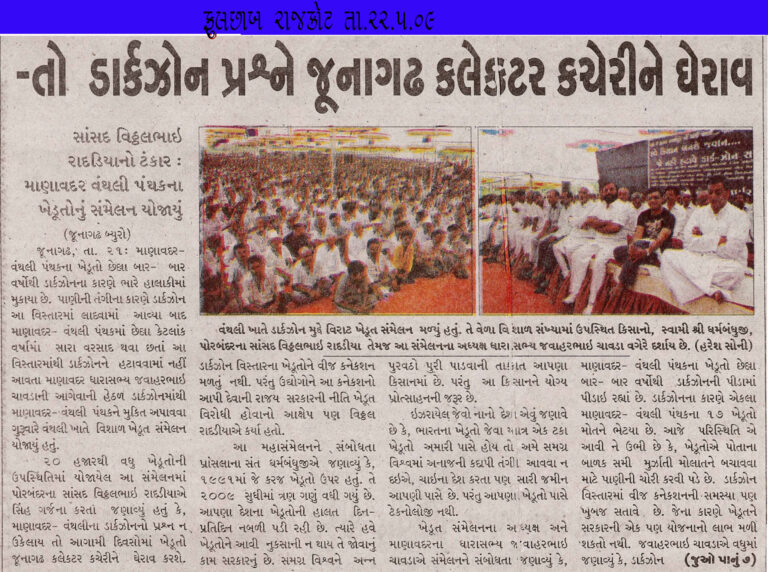
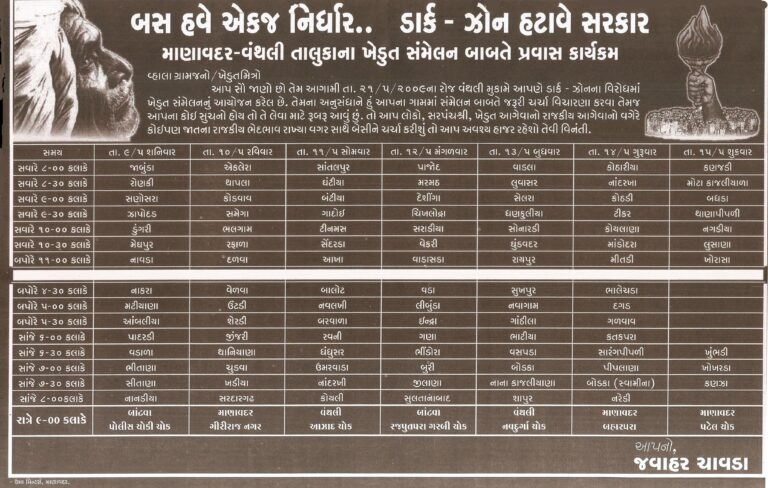
A Movement That Redefined Leadership
Unlike many leaders who focus on temporary gains, Jawahar believed in creating a long-term impact. The Dark Zone Movement in Gujarat was not just about electricity and water—it was a fight for justice for farmers. His battle was not against a political party but against an unfair law that restricted farmers while exempting industries. He proved that even the most “impossible” struggles could be won through perseverance and determination. By standing up against unjust policies, he restored faith in activism and demonstrated that true leadership means fighting for those who suffer. His story stands as a testament to one simple truth: success is never guaranteed, but fighting for what is right is always worth it.